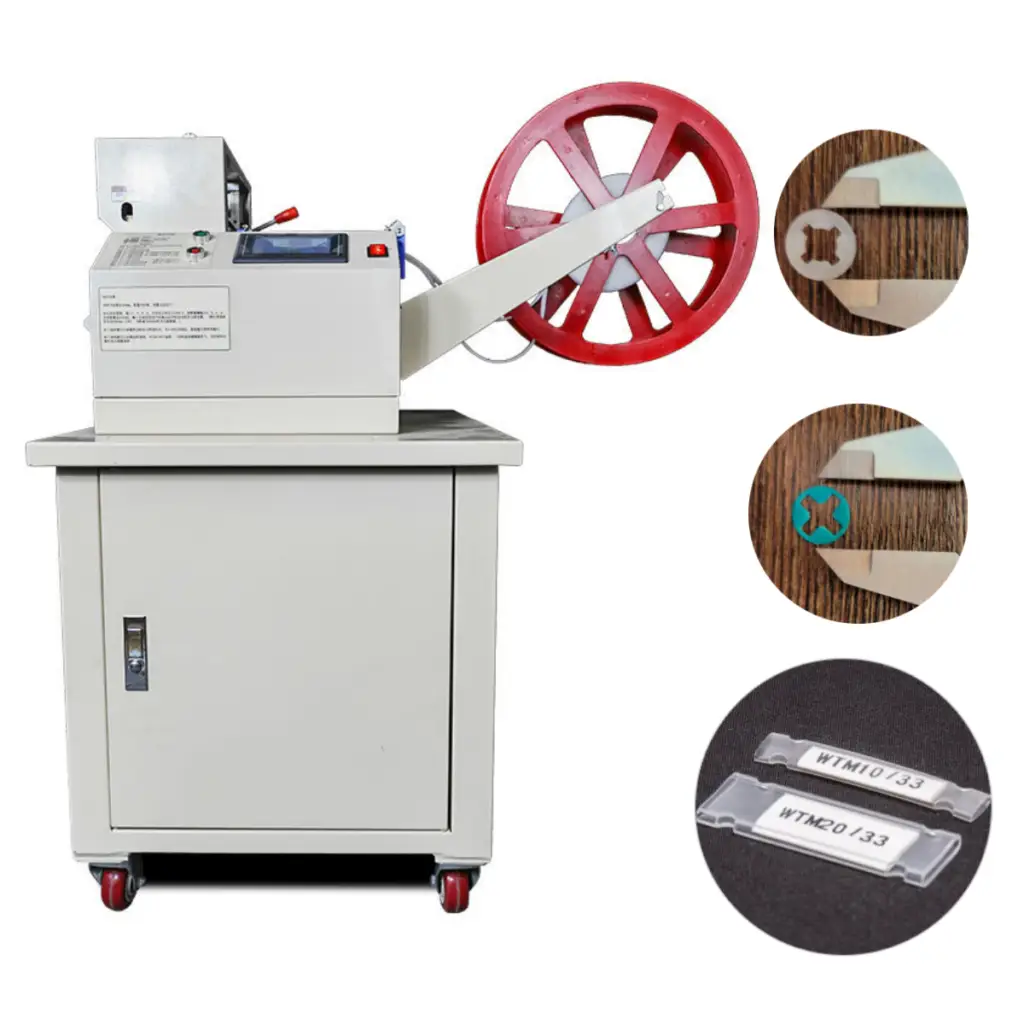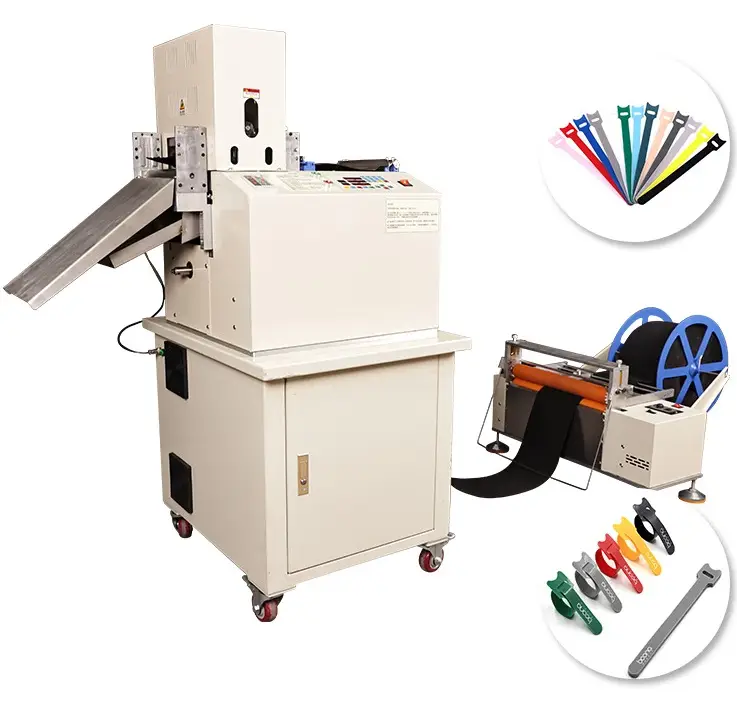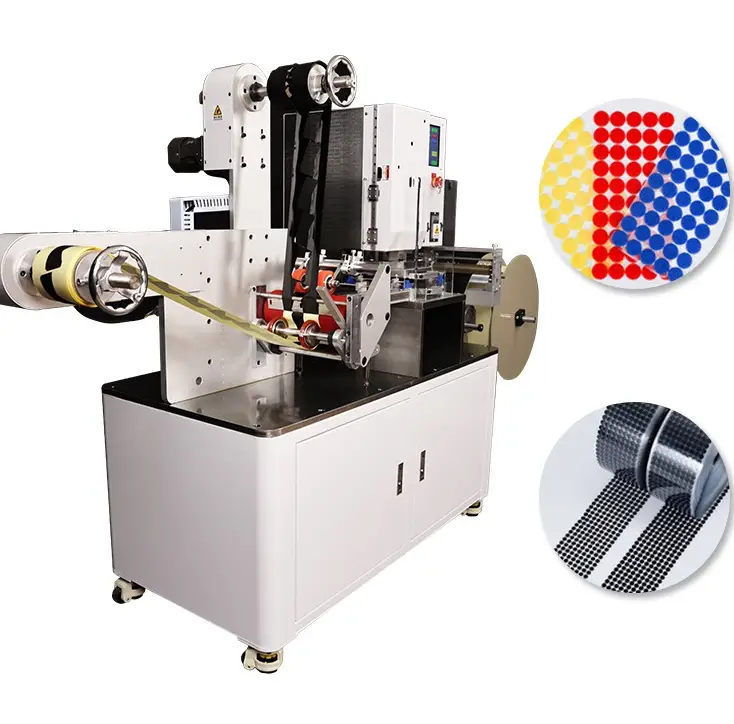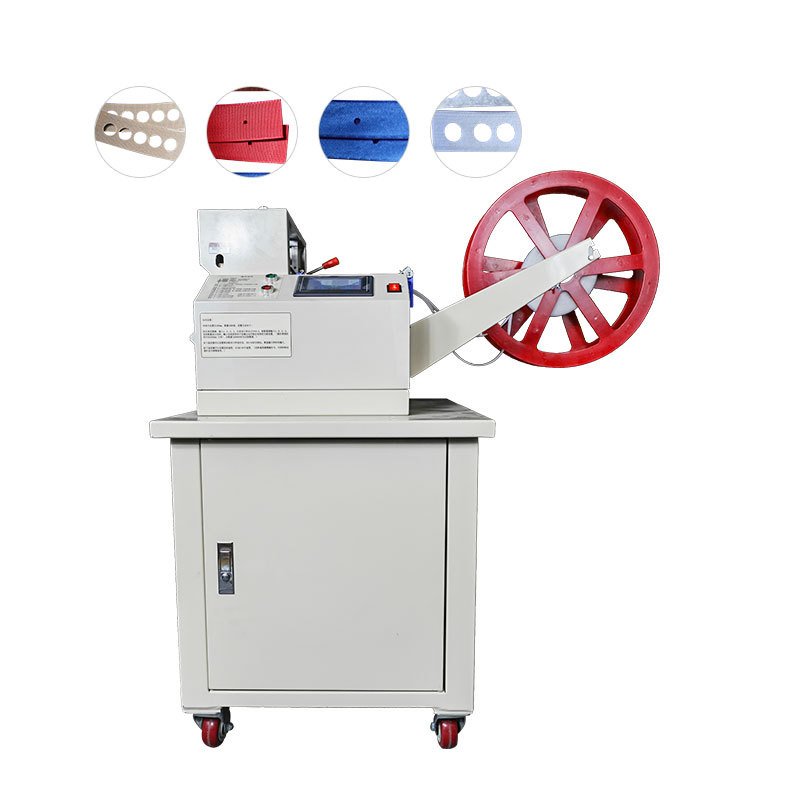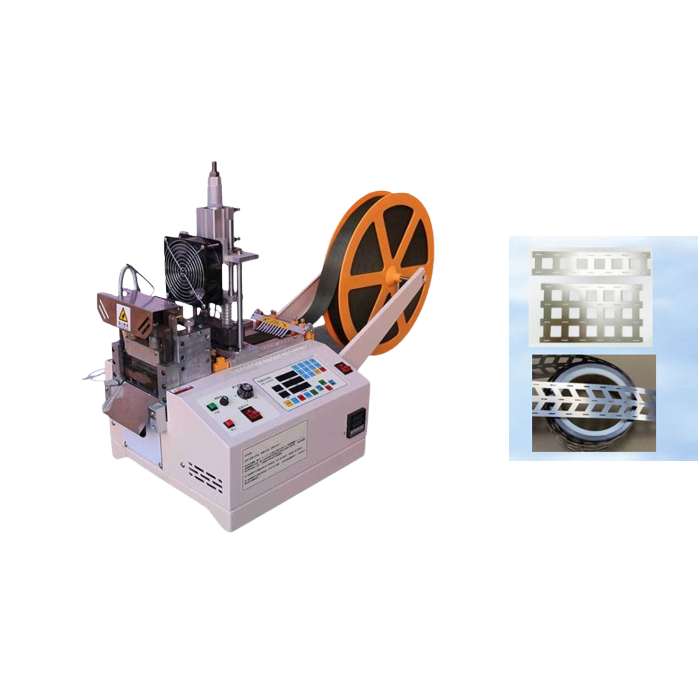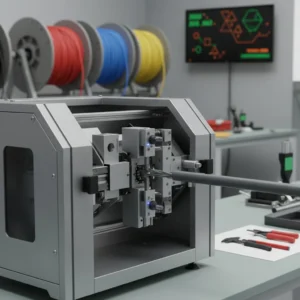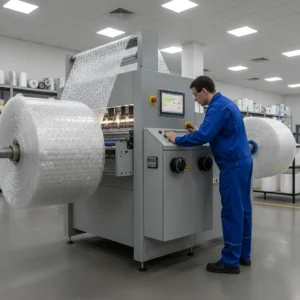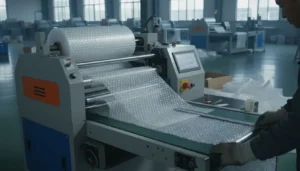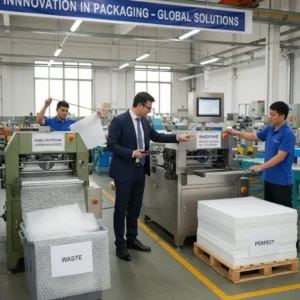How to choose a bubble wrap cutting machine for factory use?
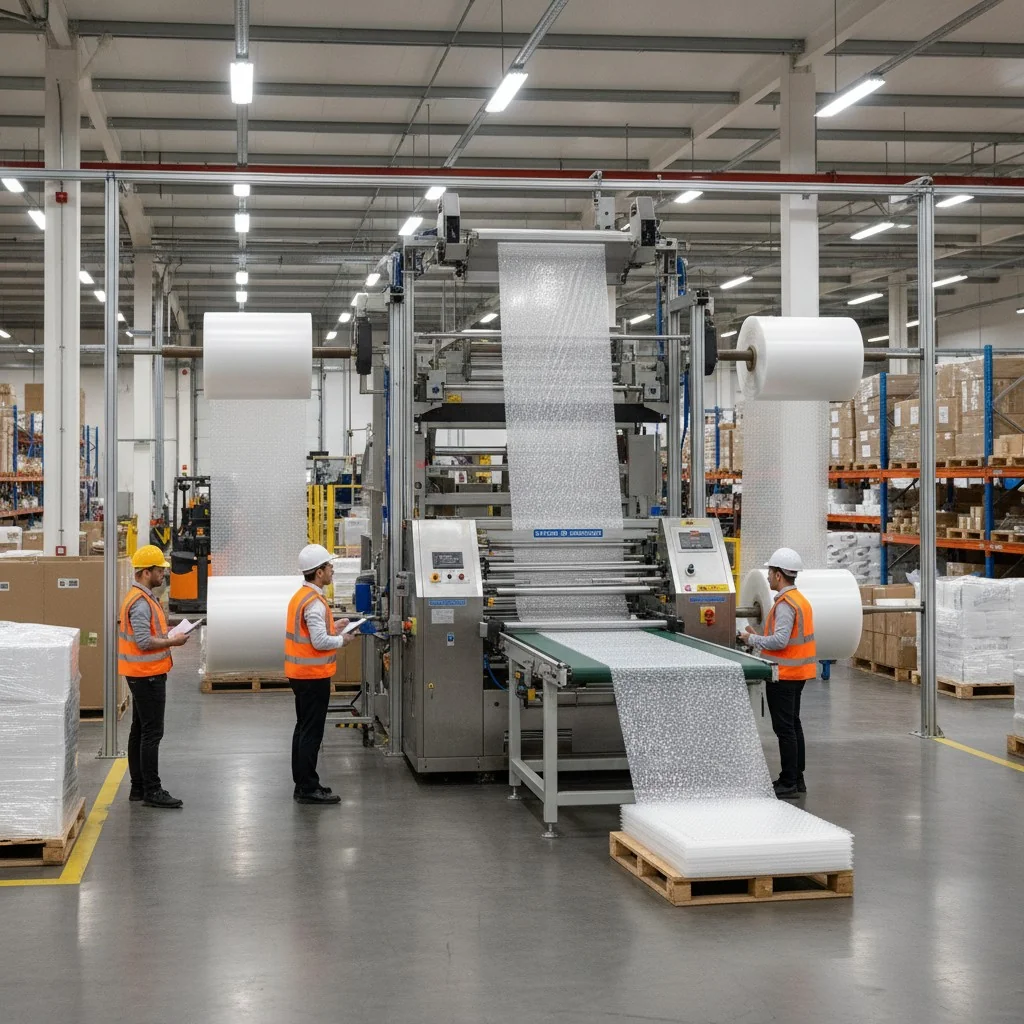
Many factories struggle to scale because their cutting process is slow, inconsistent, or wastes material. This kills productivity and profitability.
For a factory handling bubble wrap, choosing the right cutting machine depends on order volume, labor availability, and the level of automation required to avoid production delays.
- Define Production Volume: A semi-automatic bubble wrap cutting machine1e](https://hxcuttingmachine.com/buying-guide-choosing-the-best-bubble-wrap-cutting-machine-for-your-business/)[^2] works well for low-volume tasks, while fully automatic models are ideal for large-scale production.
- Choose the Right Technology: Select cutting methods such as hot wire, blade, or rotary shear depending on the bubble wrap type and required accuracy.
- Match Automation Level: Balance efficiency and labor savings by selecting the right automation features.
- Ensure Durability: Pick machines built with long-lasting, reliable components to reduce downtime.
- Select Trusted Brands: Reputable manufacturers provide better performance, durability, and after-sales support.
If you choose the wrong cutter, it becomes the bottleneck of your production line. In this post, I’ll help you find the right machine based on actual order volume, speed expectations, and your production environment.
Manual cutter vs automatic bubble wrap cutting machine2: which fits a 10k–30k orders/month workflow?
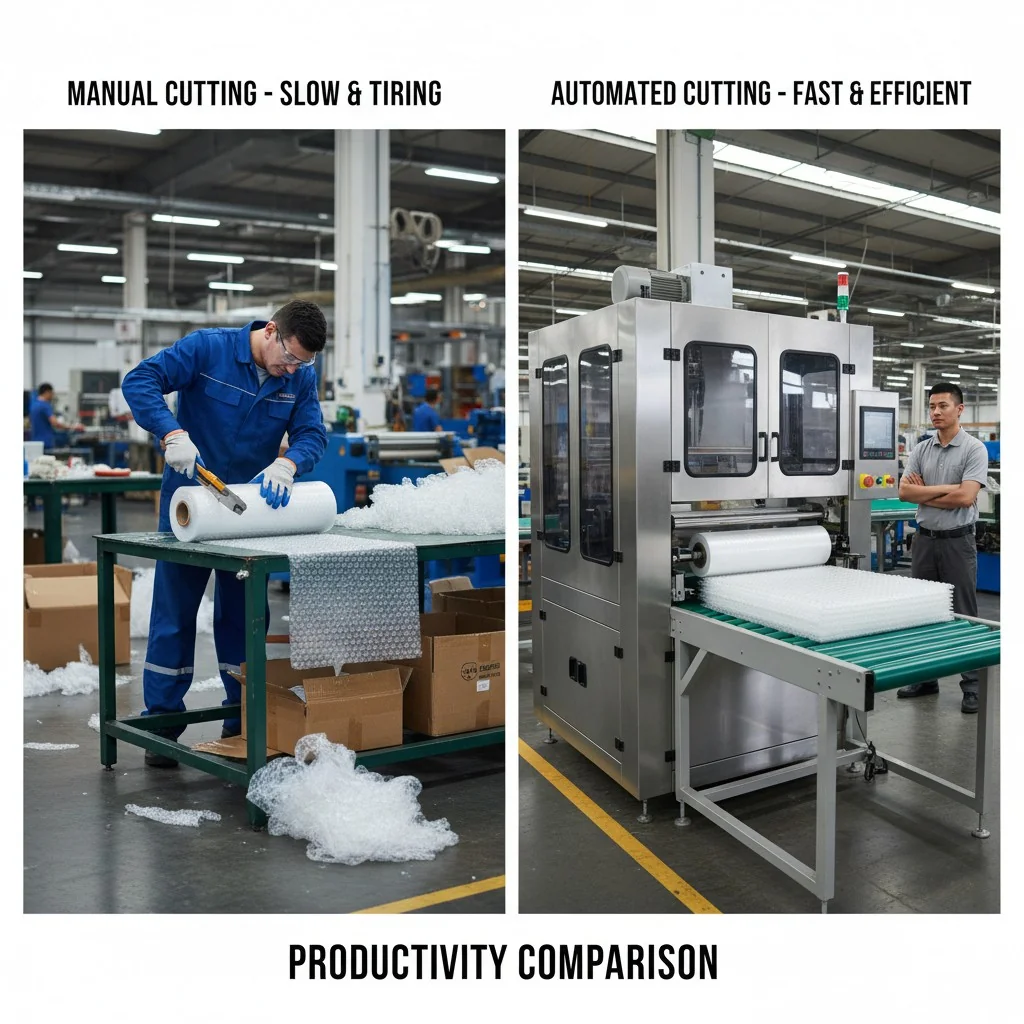
Some factory owners try to save costs by sticking with manual cutters, but they end up paying more in labor, training, and waste.
For 10,000 to 30,000 orders per month, an automatic bubble wrap cutting machine2 is the best choice to maintain speed, consistency, and lower long-term costs.
Let’s break this down clearly to see why:
What does a "manual cutter" really mean in this context?
In many factories I’ve visited, a "manual cutter" is just a staff member with a utility knife or mechanical shear. They measure by hand, eyeball the alignment, and slice the bubble wrap. This method works—for small volumes. But when you get into 10,000+ monthly orders, the cracks begin to show.
Key disadvantages of manual bubble wrap cutting:
| Problem | Impact |
|---|---|
| Inconsistent length | Bubble wrap waste, customer complaints |
| Low cutting speed | Delivery delays |
| High labor demand | More workers needed, higher payroll |
| Human error | Irregular cuts, unsafe edges |
| Worker fatigue | Slower output at end of shift |
Manual cutters simply can’t keep up with a mid-level order volume.
Why automatic bubble wrap cutting machines3](https://hxcuttingmachine.com/buying-guide-choosing-the-best-bubble-wrap-cutting-machine-for-your-business/)[^2]s are a better match
Automatic cutting machines, like the Bubble Wrap Cutting Machine we manufacture at Suzhou Haoxinhe Electrical Equipment Co., Ltd., are built to handle high-volume industrial workflows with consistent precision.
They offer:
- Speed: Cut 50–150 pieces per minute depending on size and material.
- Consistency: Each piece matches the exact length and width.
- Safety: No open blades or physical fatigue.
- Customization: You can preset lengths, batch quantities, even punch holes or curve edges.
Features to look for:
| Feature | Benefit |
|---|---|
| Digital control panel | Easy to set batch lengths and sizes |
| Auto-feed and auto-stop | Reduce labor intervention |
| Hot and cold cutting options | Prevents fraying on plastic-based bubble wrap |
| Precision roller system | Ensures even feeding, reduces waste |
| Custom width settings | Useful for different packing sizes and customer needs |
We’ve helped several clients switch from manual to automatic. One Canadian customer in the packaging industry shared that after switching, they saved 28% in labor cost and cut down 3 days from their weekly production cycle.
Consider this before choosing:
- If your bubble wrap size changes often, make sure the machine is programmable.
- If you’re exporting to regions with strict compliance, confirm the machine has CE or UL certifications4.
- If you run your production line 24/7, choose a machine with stable heat dispersion5 and low maintenance parts.
Here at HAOXINHE, our Protective Foam Cutting Machine6 and Bubble Wrap Cutting Machine are designed for exactly this scale of operation. Many of our North American clients rely on it to keep their warehouse teams focused on packing—not cutting.
Conclusion
[^2] in a factory setting.](https://hxcuttingmachine.com/wp-content/uploads/2025/09/Automatic-Bubble-Wrap-Cutting-Machine-in-Action.webp)
If you’re processing 10k–30k orders/month, it’s time to move past manual cutter7s and invest in automatic solutions that scale with your business.
Insights
From my 20+ years working with factories scaling up their packaging lines, manual cutting is one of the most deceptive operational traps. It seems "cheaper" up front—but the hidden costs are brutal. What many factory managers overlook is the compounding effect of inconsistency: 2–3cm overcut per sheet across 30,000 orders equals massive material waste monthly.
Factories in the 10k–30k order/month range are in a critical transition zone. You’re too big for manual, but not yet running at the scale of full robotics. This is exactly where semi- or fully-automatic cutting machines shine. They give you predictable throughput, minimal training needs, and data-driven cutting8—ideal for batch processing and rapid scaling.
One client in eastern Europe was stuck on manual systems. After switching to a programmable machine9 with auto-feed, they unlocked 22% capacity gain in the first quarter, and cut overtime by 40%. They didn’t just save costs—they opened the door to accept more orders without hiring.
Pro tip: Always get a machine that supports both hot and cold cutting. That flexibility lets you handle not just bubble wrap, but other plastic foams and films as your SKUs expand.
Automation is no longer optional—it’s the new entry ticket to competitive industrial packaging.
Factories processing more than 10,000 orders per month should prioritize automation in their cutting process. Manual cutters increase the risk of inconsistency, labor cost, and production delays. Investing in an automatic bubble wrap cutting machine2, like those provided by Suzhou Haoxinhe Electrical Equipment Co., Ltd., ensures precision, speed, and long-term efficiency. Our machines are customizable, certified, and built for industrial performance.
Learn about the advantages of semi-automatic machines for low-volume tasks and how they can improve your production. ↩
Explore this link to find top-rated bubble wrap cutting machines that enhance efficiency and productivity in your factory. ↩ ↩ ↩
Discover the benefits of automatic machines that enhance speed, consistency, and safety in production. ↩
Understand the significance of certifications for compliance and safety in your production line. ↩
Learn about the importance of stable heat dispersion for machines running 24/7 and their maintenance needs. ↩
Explore the features and applications of Protective Foam Cutting Machines in various packaging scenarios. ↩
Learn about the drawbacks of manual cutters and why they may not be suitable for high-volume production. ↩
Discover how data-driven cutting can optimize your production process and improve accuracy. ↩
Find out how programmable machines can adapt to changing bubble wrap sizes and improve efficiency. ↩
